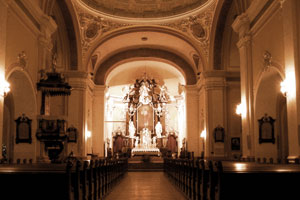Problems of Faith: Belief and Promise in Medieval and Early Modern Europe

The half–millennium before the Enlightenment in Europe is often referred to as the “Age of Faith,” and indeed the Latin terms fides (faith) and credere (to believe), along with their various cognates and vernacular translations, shaped how medieval and early modern Europeans made sense of themselves, their society, and the cosmos. These concepts were central to religious discourse, but likewise both fides and credere were at the heart of legal discourses of oath-taking and witnessing, social discourses of honor, scientific and philosophical discourses of epistemology, economic discourses of credit, and others as well. Literate Europeans in the “Age of Faith” worried excessively about what faith was, what it meant to believe, on what grounds certain propositions or persons were creditable, how faith could be mediated by language, what sorts of credit could be given to works of profane literature, how belief could be demonstrated in a fallen world, how belief could be understood in colonial and inter-religious encounters, and many other issues.
This sense of faith as a problem has unfortunately not been well represented in the scholarly literature. With the recent return of religion to the center of the human sciences, scholars of medieval and early modern Europe have increasingly stressed the need to “take belief seriously.” This seminar suggested that “taking belief seriously” precisely meant that faith must be questioned, dissected, and analyzed—not because we decided that faith is a problematic category but because our subjects did.
This Collaborative Research Seminar brought together a wide array of scholars at UC Berkeley who came to realize from different disciplinary perspectives that faith was a problem for pre-modern Europe rather than simply the background against which other problems could be analyzed. Their purpose was to give institutional life to this idea and to constitute a community around it.